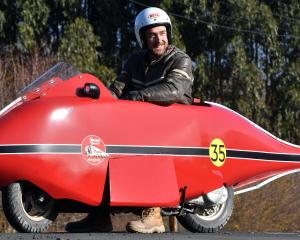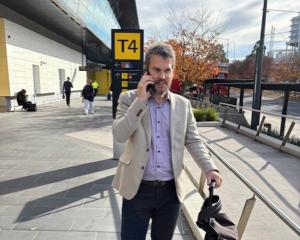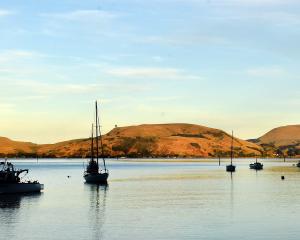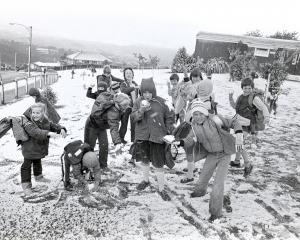St John is being forced to run a single-crewed ambulance in Dunedin, which will affect response times and could put staff at risk, a leaked staff memorandum says.
During a review into a health and safety policy it was found some volunteer staff worked more than 14 hours in a 24-hour period to ensure ambulance staff did not work alone.
In the memo, St John Coastal Otago area manager Doug Third said when a volunteer was unavailable to do an entire nightshift because of working more than 14 hours in a day, a single-crewed ambulance would run from midnight.
That meant if a patient was met by a single-crewed ambulance, they would have to wait for a second ambulance to arrive before they could be taken to hospital.
"Single crewing is far from desirable'' but St John had "limited options'' unless additional paid staff were made available, Mr Third said in the memo.
A single-crewed ambulance would also ''impact on workload and response-time targets'', the memo said.
It was also clear from the memo the safety of staff members working by themselves was a concern.
However, in an interview Mr Third said there would be occasions when ambulances would be single-crewed but he did not think that would be a major problem.
"The only delay could be before they transport to hospital.''
Mr Third said people obviously did not want single-crewing but there were lots of contingencies. St John would be working hard to make sure it did have people to crew the ambulance.''
One of those contingencies was swapping a single-crewed Mosgiel ambulance with a two-crewed Dunedin ambulance from midnight to 6.30am to make use of 60 Dunedin volunteers.
The Mosgiel ambulance was the most likely to be affected. Only 16 volunteer staff were available for the week.
The problem arose when volunteer staff worked their day job and then volunteered at night. At midnight, after starting a 7pm shift, they would hit the 14-hour threshold and legally needed to rest.
Some staff had not understood the health and safety guidelines, Mr Third said.
Some of them had thought it was all right for them to work all night after working all day, as long as they were not driving the ambulance.
This was clarified with staff and had been "strictly'' enforced since May 9.
Single-crewed ambulances had been "very, very seldom'' used before the health and safety review and there had been no problems, he said.
Staffing allocation was under review across the country but Mr Third was unsure whether Dunedin would get extra staff.
It had been requested, he said.
"They [St John] want to stop sending single-crew responses out by 2018.
St John communications adviser Ian Henderson said St John was in talks with the Government and was waiting to hear the result.
"Single crewing is not ideal but we manage as best we can,'' Mr Henderson said.
"Our chief executive Peter Bradley has been very clear that single crewing is not safe and we are moving towards stopping single crewing.''
In February, Mr Bradley sent a letter to Government officials saying St John needed an injection of millions of dollars in funding and hundreds of new emergency staff or it would stop sending ambulances if they were single-crewed.
"In my view, it is not an ambulance when it is single-crewed, and therefore unsafe,'' Mr Bradley said in the letter.
Ministry of Health director service commissioning Jill Lane said in a statement it was recognised full-crewing of ambulances was "best practice'' and St John continued to reduce the number of single-crewed responses.
An independent review of emergency road ambulance service funding had been commissioned and it was expected to provide recommendations that would support St John to further reduce the number of single-crewed responses, she said.
In 2013, 69-year-old Kaitangata woman Marlene Dormer died after she was unable to be transported to hospital immediately when tended to by a single ambulance officer.
A diabetic, she had chronic heart and lung disorders. On the night she died, Mrs Dormer had chest pains, difficulty breathing and her temperature and oxygen level had sunk low.
An on-call ambulance volunteer was unable to be reached to assist with the 4am incident.
Mrs Dormer arrived at the Balclutha medical centre more than an hour later but was pronounced dead on arrival.
The Dunedin area had a round-the-clock ambulance in the city, at its Hillside Rd station, and in Mosgiel.
It ran an extra day-shift ambulance from the city station.
There were 40 paid staff in Dunedin and six in Mosgiel, as well as 60 volunteers in the city and 16 in Mosgiel.












